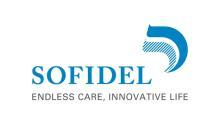The Environmentally Conscious Case for Virgin Paper Fibers

By: Giorgia Giove, Marketing Manager – Away from Home, Sofidel
Americans use an average of 141 rolls of toilet paper per person annually, more than citizens of any other country.1 As climate change continues to drive businesses to consider ways to reduce carbon emissions, a debate has ensued over whether using recycled or non-recycled (virgin) fibers is a more environmentally friendly means of producing the large volume of toilet paper Americans consume.
The word “recycled” often evokes a sense of caring for the earth, efforts to conserve natural resources and consciousness of climate change. This makes sense since recycling, in general, can be an effective method of reducing landfill waste (especially single-use plastic), which contributes to global warming.2
However, when it comes to selecting paper products like toilet paper and paper towels, organizations should carefully consider the environmental impact of the product’s entire life cycle, not just whether it is made from recycled or virgin fibers. In many cases, this decision-making can reveal potential pitfalls of recycled paper and show how virgin fibers can be a superior option in terms of both sustainability3 and quality.
Potential Pitfalls of Recycled Paper
Examining the potential drawbacks of using recycled fibers, which may not be obvious at first, can help facility managers make more informed decisions. These include a finite life cycle, low quality and misleading branding.
- Paper can’t be recycled infinitely: Paper fibers shorten each time they are recycled. For this reason, paper products can only reasonably be reused five to seven times.4 In addition, it is not possible for buyers to know how many times fibers have been recycled, making it difficult to gauge the effectiveness of some recycled products.
- There are quality concerns with recycled fibers: Overused fibers can result in inconsistencies, low quality and poor performance. This can create an unpleasant restroom experience that may damage brand reputation.5 Toilet paper and paper towels made from recycled fibers also provide less absorbency and softness than virgin fibers. Since research shows that strength, absorbency and softness are the three attributes Americans value in public restroom toilet paper,6 facility managers should prioritize these qualities as well as environmental impact when selecting paper products.
- The real meaning of ‘recycled’ is fluid: Companies often boldly claim that their products are “green,” “sustainable,” or “recycled.” However, if a brand’s packaging does not identify the paper product as “100% recycled,” it may have been recovered using energy generated from coal. Because it is contributing to greenhouse gas emissions and using excess energy, recycled paper that does not meet the 100% mark may as well have not been recycled at all. Finally, 30-35% of the fibers used to make tissue paper and pulp are lost during the recycling process. A better use for recycled fibers is for producing materials like packaging paper and cardboard, which generate less than 20% of the waste compared to recycled tissue paper.7
The Lowdown on Virgin Fibers
It is important to examine the source with paper made from virgin fibers. Some producers have innovative, sustainable strategies and new technologies that enable virgin paper production to be an environmentally responsible solution. Look for products certified by the Forest Stewardship Council (FSC)8, a non-profit that makes sure products originate from “responsibly managed forests that provide environmental, social and economic benefits.” After finding a paper producer that uses virgin fibers responsibly, suppliers may find that virgin fibers actually offer a variety of benefits, including minimizing environmental impact, increasing the quality of the products in their inventory and improving the hygiene of their paper products.
In terms of sustainability, recent research sheds light on the environmental impact of virgin fibers compared to recycled fibers. In studies comparing toilet tissue made from virgin fibers to recycled fibers, researchers found that even though it contained twice as much fiber, the virgin product released fewer greenhouse gases, generated less waste and required less water than the recycled fiber product. The studies accounted for the entire lifecycle of the products, including the environmental harm inflicted during the production process of recycled products. The researchers also found that the “global warming potential,” or the amount of carbon dioxide equivalents released during the product’s lifecycle, was greater in the recycled option.9
On the subject of quality, virgin fibers create paper that has higher absorbency rates and better ink color and retention, and is softer and more durable. Because they are stronger and more reliable, virgin fiber products give customers an enhanced experience, an invaluable asset in an age when negative restroom experiences can quickly go viral.
In addition to environmental and quality advantages, the right virgin paper products also provide better hygiene than recycled products. The modern production process of virgin fibers is much more hygienic than recycled paper mills and generates energy needed by burning waste wood rather than relying on electricity or fossil fuels like recycled mills. The virgin production process creates no bacteria-harboring starches and leaves behind no slime found in some recycled products.10
Overcoming Paper Product Misconceptions
When it comes to purchasing paper products like toilet paper and paper towels, facility managers should be wary of declarations like “green,” “sustainable” or “recycled.” Taking a closer look at the differences between virgin and recycled fibers can help uncover the hidden pitfalls of recycled paper. Products made from virgin fibers are, in fact, ideal for businesses looking to minimize their carbon footprint, boost the quality of their paper products and deliver a pleasant restroom experience for guests.
Giorgia Giove is Marketing Manager for the Away from Home business at Sofidel, a world leader in the manufacture of paper for hygienic and domestic use, including its Papernet brand. For more information, visit www.papernet.com/americas.
1 https://www.statista.com/chart/15676/cmo-toilet-paper-consumption/
4 https://earth911.com/business-policy/how-many-times-recycled/
5 https://www.qsrweb.com/blogs/qsr-restrooms-small-space-big-brand-impact/
7 Giner-Santonja, Germán & Suhr, Michael & Klein, Gabriele & Kourti, Ioanna & Gonzalo, Miguel & Roudier, Serge & Sancho, Luis. “Best Available Techniques (BAT) Reference Document for the Production of Pulp, Paper and Board.” (2015).
8 https://us.fsc.org/en-us/who-we-are
9 The International Environmental Product Declaration (EPD) System. “Life Cycle Assessment of Products: Toilet Paper: Lucart Strong and Lucart Eco.” (2019). Life Cycle Assessment of Products: Bath Tissue Lucart Strong 10 Rolls and Bath Tissue Lucart Eco 10 Rolls by Lucart Group.” Italy. (2018).
The International Environmental Product Declaration (EPD) System. “Life Cycle Assessment of Products: Toilet Paper Aloutte 10 Rolls 3 Plies, Kitchen Towel Aloutte 4 Rolls and Handkerchief Aloutte 30x10 Produced by Sofidel Group.” Germany. (2019).
10 https://www.ncbi.nlm.nih.gov/pubmed/20544256
About The Sofidel Group
The Sofidel Group, a privately held company owned by the Stefani and Lazzareschi families, is a world leader in the manufacture of paper for hygienic and domestic use. Founded in 1966, the Group has subsidiaries in 12 countries – Italy, Spain, the UK, France, Belgium, Germany, Sweden, Poland, Hungary, Greece, Romania, and the USA - with more than 6,400 employees. A member of the UN Global Compact and the international WWF Climate Savers program, the Sofidel Group considers sustainability a strategic imperative and is committed to promoting sustainable development. For more information, visit www.sofidel.com.
Media Contact:
Brianna Fitzpatrick
Mulberry Marketing Communications

